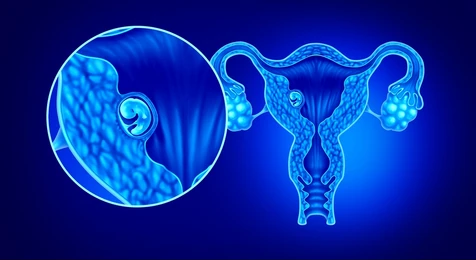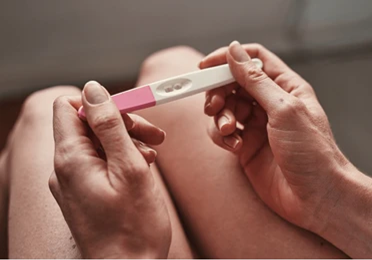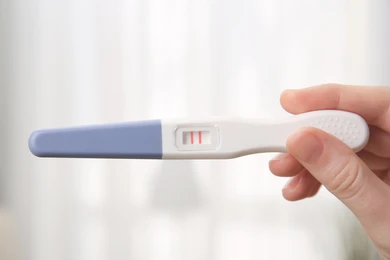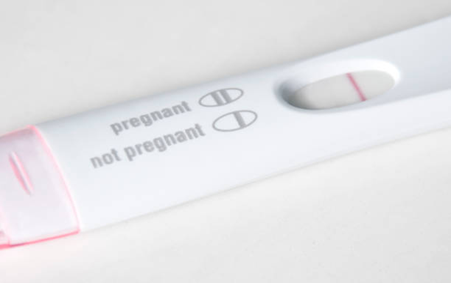
In vitro fertilization (IVF) has helped many couples achieve parenthood when conventional methods have been ineffective. A critical step in IVF is embryo transfer, during which selected embryos are placed into the uterus. While this milestone brings hope, it can also cause anxiety during the 14 days post embryo transfer phase, when pregnancy tests are often conducted. Understanding what to expect in this crucial period is essential for determining the outcome of the IVF cycle.
Dr. Mohit Saraogi, the chief IVF specialist at Saraogi Hospital, recognized as one of the best IVF centre in Mumbai, explains:
“The 14-day wait can be emotionally tough. Tracking symptoms and following your doctor’s advice can significantly improve your chances of success. Remember, each patient’s journey is unique, and the presence or absence of symptoms does not always predict outcomes. Patience and proper guidance are essential.”
With years of experience, Dr. Mohit Saraogi, one of the best IVF doctor in Mumbai, has assisted numerous couples through personalized treatment plans tailored to their specific needs. His expertise in reproductive medicine, combined with the hospital’s advanced technology, ensures the best possible patient outcomes.
Wondering what happens during this critical period? Let’s explore the key changes your body undergoes during these 14 days.
What to Expect 14 Days After Embryo Transfer?

After embryo transfer, the body begins adjusting to hormonal changes. The 14-day period after embryo transfer is critical. During this time, the embryo either implants in the uterine lining or doesn’t. Symptoms like mild cramping, light spotting (implantation bleeding), or breast tenderness are common and may indicate successful implantation.
However, the absence of symptoms does not necessarily mean the transfer was unsuccessful. HCG levels, measured through a beta test, typically rise around day 14 post-transfer. During this phase, a blood test is more accurate than a home pregnancy test. Consulting a specialist will ensure proper guidance based on your unique case.
Your fertility journey deserves expert care. Get in touch with a seasoned specialist for personalized guidance. Book an appointment now!
Is It Normal to Have Symptoms 14 Days Post-Embryo Transfer?

It’s common to experience mild symptoms 14 days post embryo transfer. Signs like fatigue, nausea, light spotting or mood swings may appear due to hormonal changes or early pregnancy. However, not everyone experiences noticeable symptoms, and this is perfectly normal.
Dr. Mohit Saraogi advises,
“Listen to your body but avoid jumping to conclusions. 14 days post embryo transfer symptoms can vary widely, and only a professional evaluation can confirm results.”
Staying hydrated, avoiding stress, and following your doctor’s recommendations can improve your experience during this time. It’s crucial to communicate openly with your IVF specialist about any unusual symptoms or concerns. Early guidance can help address potential issues quickly.
Can I Take a Pregnancy Test 14 Days After Embryo Transfer?

Day 14 post embryo transfer, is an ideal time to take a pregnancy test. By this point, the HCG levels in your blood should be detectable if the embryo has implanted successfully. A beta HCG blood test is recommended for accuracy over home tests, which can sometimes provide false results.
Testing too early may lead to unnecessary stress due to low HCG levels that are not yet detectable. Wait for your doctor’s guidance before testing to ensure accurate results. Remember, each case is unique, and the results depend on multiple factors. Trusting your specialist ensures you receive appropriate advice tailored to your situation.
What Are the Signs of a Successful Embryo Transfer at 14 Days?

- Missed Period: A common early indication of pregnancy is the absence of your period after the embryo transfer.
- Positive Pregnancy Test: A beta HCG test or a home pregnancy test 14 days post-transfer may show positive results. Elevated HCG levels confirm implantation.
- Mild Cramping: Light cramping may occur as the embryo implants into the uterine lining.
- Spotting or Light Bleeding: This could be implantation bleeding, which is normal and often happens around this time.
- Breast Tenderness: Hormonal changes associated with early pregnancy can cause breasts to feel sore or swollen.
- Fatigue: A sudden increase in fatigue is common due to rising progesterone levels in the body.
- Increased Basal Body Temperature: A slight rise in body temperature for an extended period may indicate successful implantation.
- Nausea or Food Aversions: Some women may begin experiencing morning sickness or aversions to certain foods.
It’s important to remember that not all women experience these signs, and their absence doesn’t necessarily mean the transfer was unsuccessful. Consulting a specialist for personalized advice is recommended.
What Are the Signs of a Failed Embryo Transfer at 14 Days?

- Negative Pregnancy Test: A beta HCG test or home pregnancy test showing no detectable HCG levels may indicate the transfer was unsuccessful.
- No Symptoms of Pregnancy: The absence of early pregnancy symptoms, such as fatigue, nausea, or breast tenderness, might suggest implantation did not occur.
- Persistent Menstrual-Like Cramps: Severe cramping without other signs of pregnancy may indicate that the embryo did not implant.
- Heavy Bleeding or Period-Like Flow: Experiencing a heavy bleed, similar to a menstrual period, can signify implantation failure.
- Drop in Basal Body Temperature: A significant drop in basal body temperature could indicate that pregnancy has not been achieved.
- No Rise in HCG Levels: If 14 days post transfer HCG levels remain low or unchanged in blood tests, it is a sign of unsuccessful implantation.
It is essential to consult with a specialist to confirm these signs and determine the next steps. Every individual responds differently, and a detailed assessment is crucial for accurate conclusions.
What Should I Do if I'm Experiencing Unusual Symptoms 14 Days Post-Transfer?

- Contact Your Specialist Immediately: If you experience severe pain, heavy bleeding, or any unusual symptoms, seek medical advice without delay.
- Avoid Self-Diagnosis: Refrain from drawing conclusions or relying on online resources. Each case is unique and requires professional evaluation.
- Monitor Symptoms Closely: Keep a record of symptoms, including their severity, duration, and any triggers, to provide detailed information to your doctor.
- Rest and Hydrate: Ensure you rest adequately and stay hydrated while waiting for guidance from your specialist.
- Avoid Stressful Activities: Minimize physical exertion or stress to avoid exacerbating symptoms.
- Follow Post-Transfer Guidelines: Adhere strictly to any post-embryo transfer instructions provided by your IVF specialist.
Always remember unusual symptoms do not always mean complications. Prompt communication with your specialist can help address concerns effectively.
Conclusion
The 14 days post embryo transfer are emotional yet vital in an IVF journey. Understanding the process, recognizing symptoms, and consulting experts can make the journey smoother. At Saraogi Hospital, one of the best IVF centre in Mumbai, advanced fertility treatments and personalized care are cornerstones of success. With Dr. Mohit Saraogi’s expertise, patients receive comprehensive support tailored to their needs.
Have concerns about your symptoms? Seek expert advice from a fertility professional today. Schedule an appointment now!
Got more questions? We’ve got the answers you need right here…
FAQ
1. What is the ideal time to take a pregnancy test after an embryo transfer?
It’s recommended to take a pregnancy test 14 days after the embryo transfer. This allows time for the embryo to implant and for HCG levels to rise.
2. How do I know if the embryo transfer was successful?
3. Can I experience cramping 14 days after embryo transfer?
4. Is light bleeding normal 14 days after embryo transfer?
5. What if I have no pregnancy symptoms 14 days after embryo transfer?
Disclaimer: This page is for informational purposes and not for promotional use.

